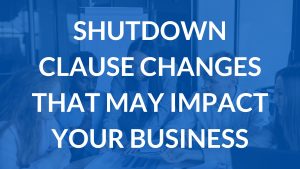
Income from more than one job?

David Andreoli
Balanced Bookkeeping & Tax
The tax-free threshold is the amount that the Government has declared to be tax free for each resident taxpayer. Generally everyone will claim the tax-free threshold, but if you have multiple employers you usually only claim the tax-free threshold from one. Claiming the tax-free threshold reduces the amount of tax withheld from your income and can impact your return at tax time.
Currently the tax-free threshold is $18,200. This means if you’re an Australian resident for tax purposes, the first $18,200 of your income in each income year is tax-free. You can choose to claim the tax-free threshold, which will be taken into account when you are taxed by your employer each payrun. This is straight forward when you only have one employer.
If you have more than one employer at the same time, it is important to only claim the tax-free threshold from one of them – usually from the payer who pays the highest salary or wage. Your other employers then withhold tax from your income at a higher rate. If you claim the tax-free threshold from multiple employers at the same time, you will end up paying too little tax. As a result, you will most likely receive a tax bill when you process your year-end tax return.
Sometimes the total tax withheld from all sources may be more or less than the amount you need to meet your end-of-year tax liability. These tax withheld amounts are credited to you when you lodge your income tax return and, if too much tax was withheld, it may result in a tax refund. However, if not enough tax was withheld, you may need to pay the difference to the ATO so that you have paid enough tax for your income.
Whether too much or not enough tax is withheld during the year – it all sorts itself out through your tax return. If too much tax was taken during the year – your net pay each payrun will be less but you will get a better result when you process your year-end tax return. If not enough tax was taken during the year – your net pay each payrun will be higher but you will get a worse result in your tax return at year-end.
If you’d like to chat about your individual or business tax and/or accounting needs, get in contact with us by hitting the button below.
After more articles?

New working from home tax changes! What you need to know:
New working from home tax changes! What you need to know: The Australian Taxation Office (ATO) has significantly changed the way that taxpayers claim deductions for costs incurred while working from home. From 1st July 2022 the old fixed rate method of $0.52 cents per hour can no longer be used to calculate your deductions. The

Shutdown clause changes that may impact your business
Changes have been announced that impact shutdown clauses under 78 Modern Awards! These changes took effect from 1 May 2023. It is important to note that this is different to “stand down” of employees. What is a shutdown? A shutdown occurs where the business makes the decision that it will stop operating for a temporary

How Does Tax Apply to Electric Cars?
Just in time for the Fringe Benefits Tax (FBT) year that started on 1 April, the Australian Taxation Office (ATO) has released new details on electric vehicles. The FBT exemption for electric cars If your employer provides you with the use of a car that is classified as a zero or low emissions vehicle there

What About Super?
Future earnings for super balances above $3m taxed at 30% from 2025-26 The Government has announced that from 2025‑26, the 15% concessional tax rate applied to future earnings for superannuation balances above $3 million will increase to 30%. The concessional tax rate on earnings from superannuation in the accumulation phase will remain at 15% up

What will the ATO be Asking about your Holiday Home?
Taxpayers claiming deductions on holiday homes are in the ATO’s sights. The ATO is concerned that people with holiday homes are claiming more deductions than they should and have published the starting questions they will be asking to scrutinise claims: · How many days was it rented out and was the rent in line with

What’s The Deal With Working From Home?
What’s the deal with working from home? The ATO has ‘refreshed’ the way you can claim deductions for the costs you incur when you work from home. From 1 July 2022 onwards, you can choose either to use a new ‘fixed rate’ method (67 cents per hour), or the ‘actual cost’ method depending on what
